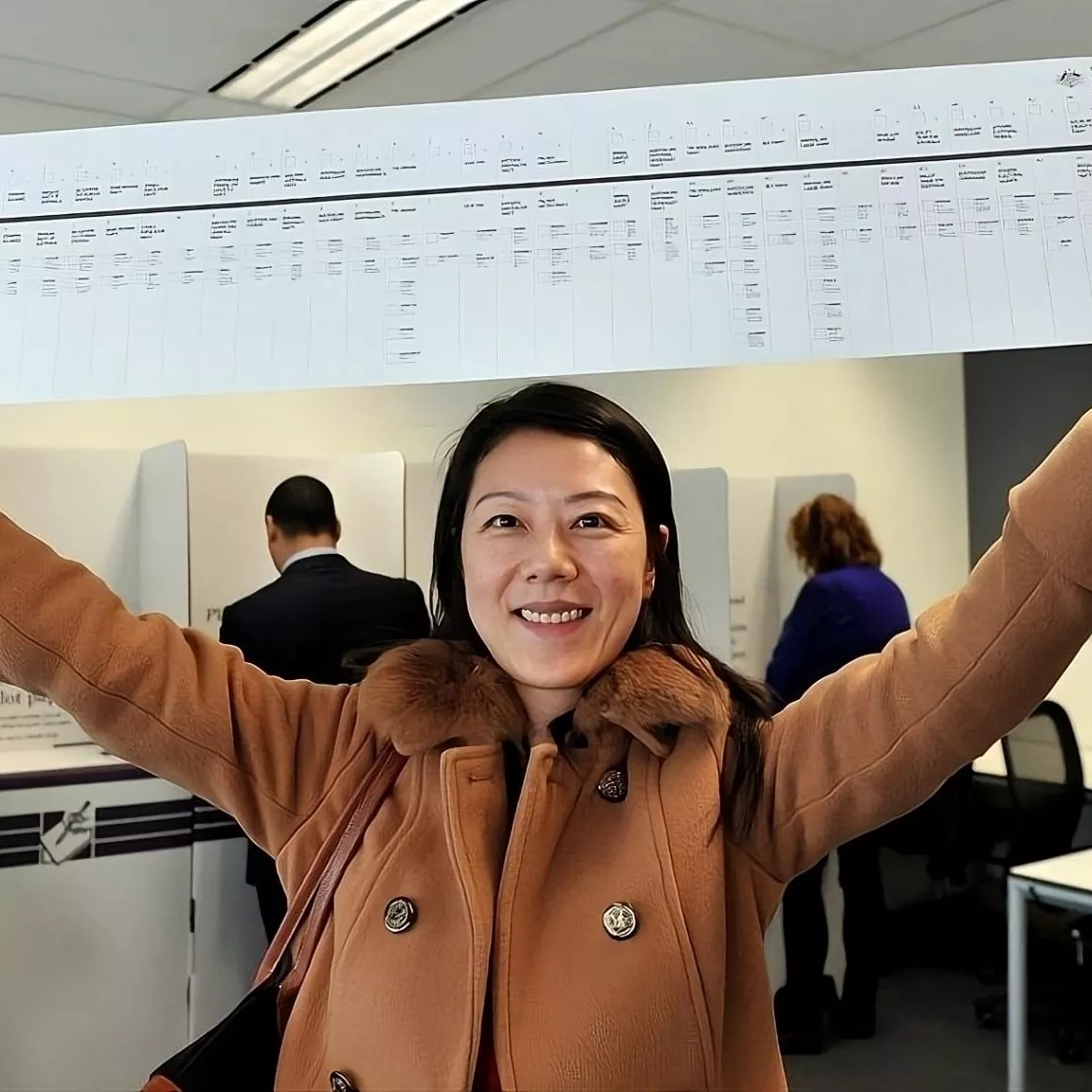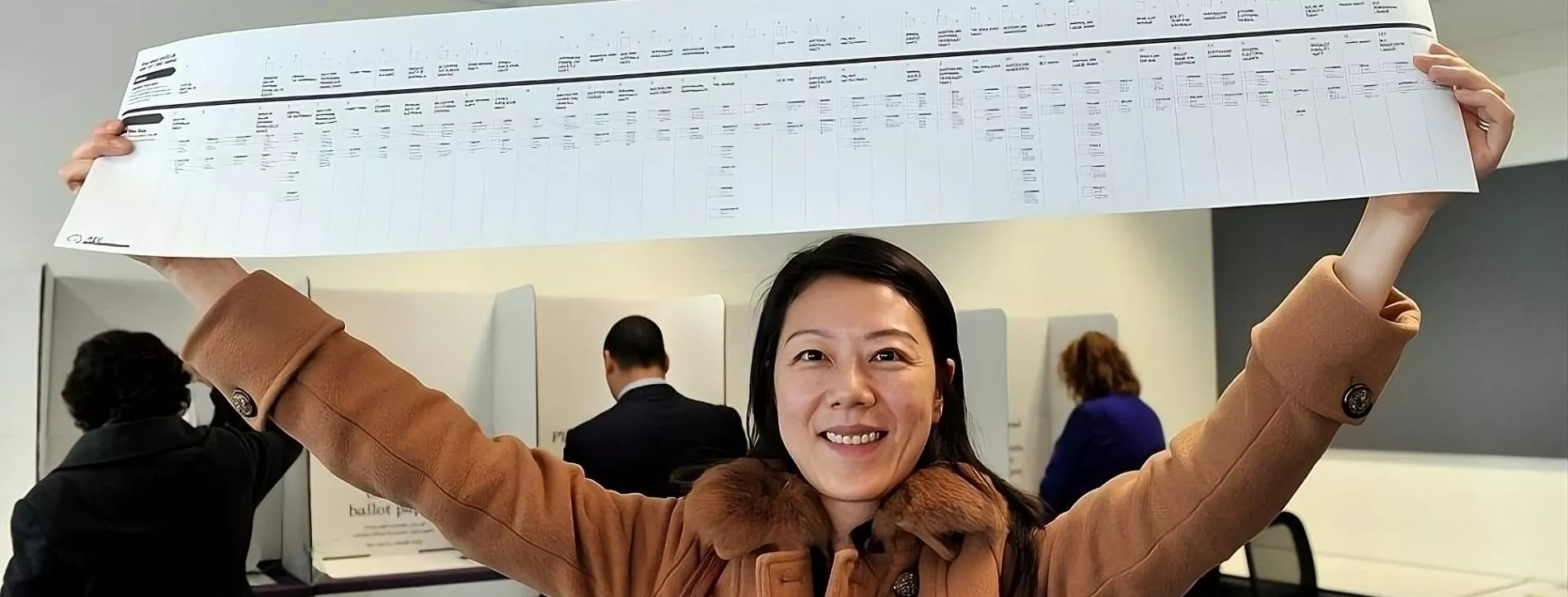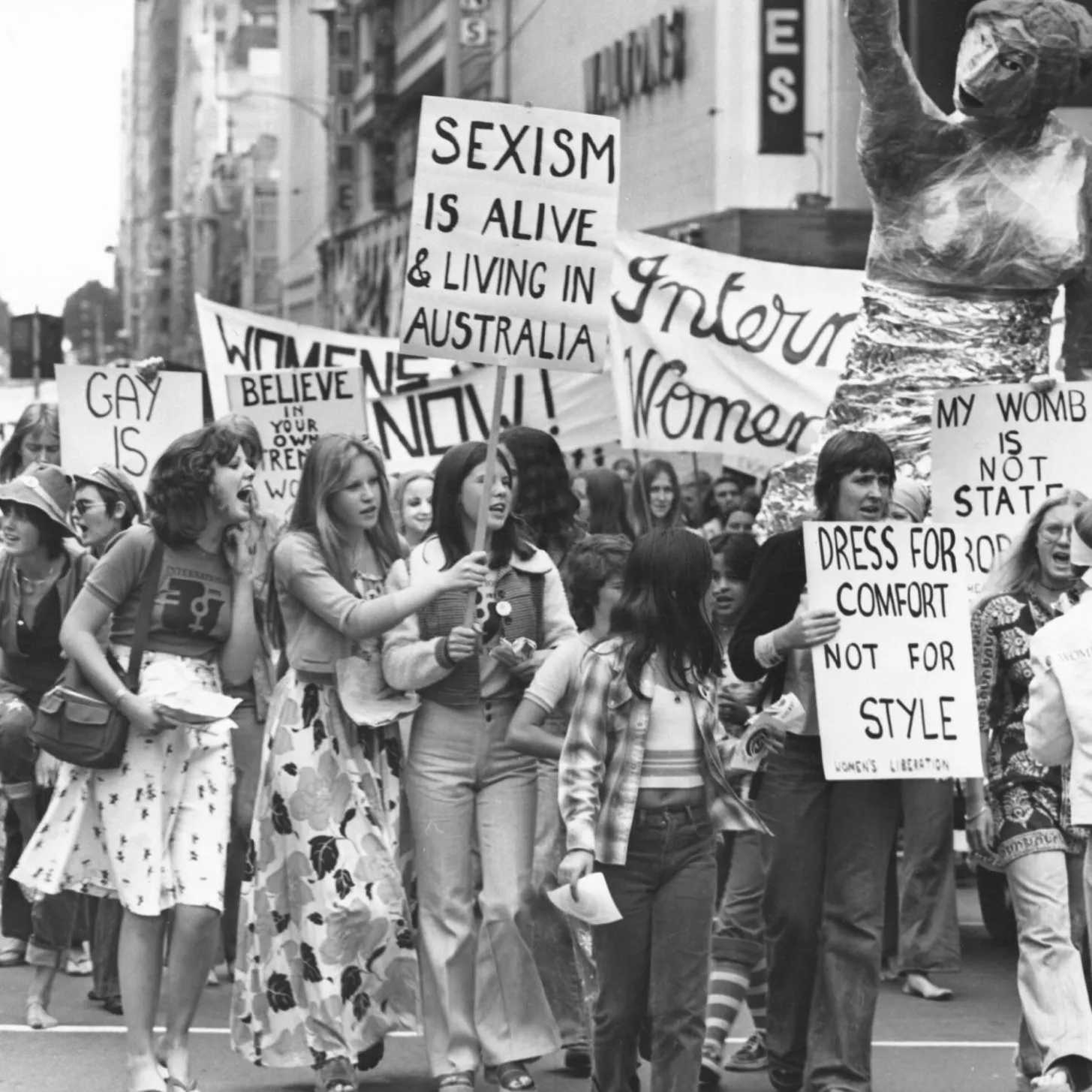Defining democracy
What is democracy?
Democracy is often said to mean 'rule by the people'. An example of this is any system of government in which people vote their elected representatives into parliament.
But simple definitions don't capture the complexity and opportunity of democracy.
It's an ongoing conversation: robust discussion and debate that needs everyone's voices to work. That could mean voting, protesting, running for office or another of the many ways you can take part.
Keep reading to explore how democracy evolved and the role you play in it.
- Greta Thunberg
Where did democracy come from?
The word was first used in ancient Athens, which is considered the birthplace of democracy. It's a combination of two Greek words: demos, a citizen of a city-state, and kratos, meaning 'power' or 'rule'.
Modern democracies took shape over many centuries. Citizens came together and worked towards a fairer society. They often had to fight to have their voices heard. This story of democracy continues today – most of the world's democracies are less than 100 years old.
How do you know what a successful one looks like?
most of the world's democracies are less than 100 years old
What are the principles of democracy?
There's no such thing as a perfect democratic society. In reality, it is a fine balance between citizen and government, a mix between:
- Liberal democracy, emphasising individual freedom and scepticism toward power concentrated into groups or government; and
- Social democracy, emphasising equality through the collective action of groups, government and organisations.
Both have their downsides. Power is often claimed by an elite class in liberal democracies. Overbearing governance can hinder personal freedom in social democracies.
But successful democracies are always evolving, guided by principles of:
Legitimacy: Its government has a valid mandate earned through frequent elections, assured by independent institutions and demonstrated by a free society.
Justice: All citizens are treated with equality, dignity and respect by society and its institutions.
Free will: Citizens can make, learn from and be held to their own decisions, within the bounds of laws, for the common good.
Power: Parliament, governance and justice are separated into independent institutions, with a constitution providing checks and balances on their powers.
These principles help us determine a democracy's health, progress and opportunities.
But what does it look like when it is struggling, or facing a threat?
Measuring the success of democracy
Because democracy is a fine balance, society needs compromise and understanding. Government must deliver services and demonstrate trustworthiness. Citizens must contribute, too – think taxes, voting and respect for one another.
Everybody should be able to assess whether their democracy is working for them. There are three criteria to measure part or all of your democracy against:
- Is it free? Do people enjoy rights and freedoms, and collectively have their voices heard?
- Is is equitable? Do people have similar opportunities and responsibilities while accounting for different circumstances?
- Is it fair? Do the services and protections people receive match the concessions they are asked to make?
These are especially useful for knowing if you and your democracy are prepared for a crisis.
What challenges does democracy face?
When a democracy is faced with a crisis, its strength – how well the principles of democracy are understood and adhered to – is put to the test.
A democracy responds well to a crisis when:
- The scale of the problem is clearly understood
- Leaders and institutions are open and honest
- People understand their personal and shared responsibilities
- Everyone takes fast and meaningful actions to respond
- The people trust, and are given reason to trust, the democratic system
Most crises, such as economic downturns, pandemics and disasters, require a response. Some, such as corruption or severe mismanagement, can be hard to spot early and threaten the democratic system itself. When a crisis emerges, it's important to consider if you and your democracy are prepared to face it and whether the response is a healthy balance of free, equitable and fair.
You might want to ask these questions:
- Are leaders being clear and reasonable?
- Who is holding the government to account and how?
- How do I know I'm being told the truth about the crisis?
- Do I have multiple credible sources I can trust to inform me?
- What is my democracy's track record of dealing with crises like this one?
- How does mine compare to other democratic or non-democratic societies?
- What personal freedoms am I willing to sacrifice to deal with this?
- What will I do if I'm asked to do something I don’t want to?
- How will I impact my family or community if I don't share responsibility?
Whether it's a bushfire or a political scandal, the solution to a crisis is always more democracy, not less.
How can you be part of that solution?
How can I participate in democracy?
You probably have ideas of how you can participate in your democracy, such as free and fair voting in both elections and referendums.
A healthy democracy gives any citizen the chance to represent their community as a political candidate. They might join an existing party or run as an independent in an election.
Another option is advocacy and protest. Many rights have been won through persistent and vocal protest in response to inequality, violence or discrimination from an authority or ruling class.
There are plenty of other ways you can choose to take part in your democracy:
Speaking with or writing to local representatives or political candidates.
Submitting your perspectives on a matter to a parliamentary inquiry.
Working with or within government to design and deliver better services.
Building or joining a social cause with like-minded citizens.
Seeking out different perspectives on an issue from experts and voices in your community.









